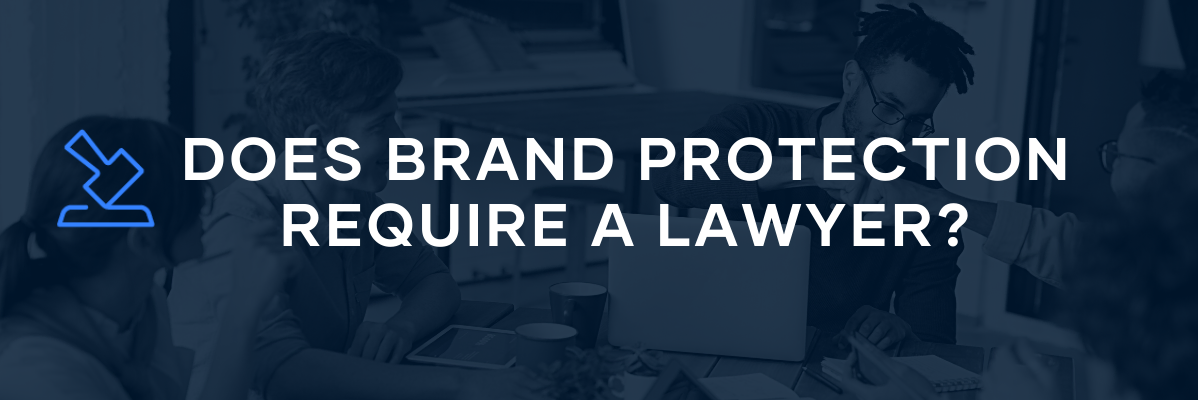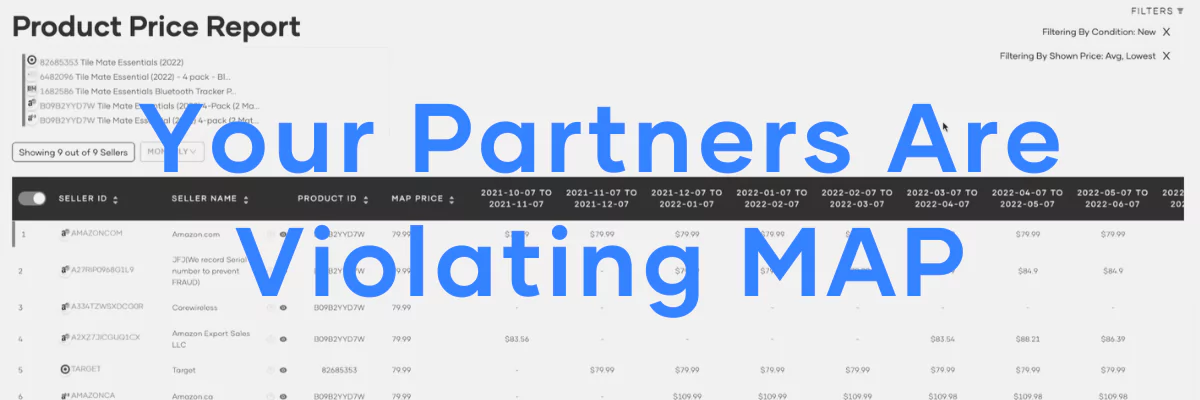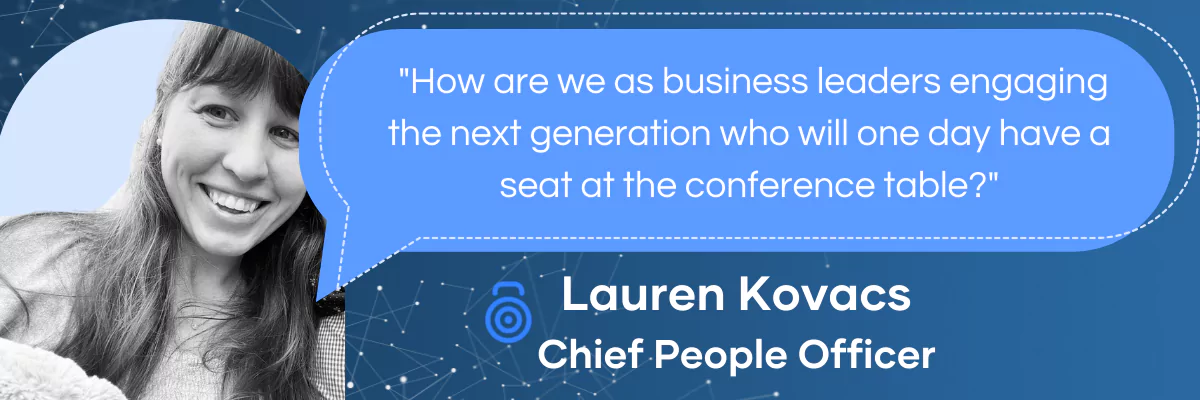Our sales team proverbially lives on calls answering a plethora of brand protection questions. While some questions are more nuanced, we’ve found through these constant interactions that there are core “FAQs” that often stump professionals trying to understand this industry more. That’s where our new FAQ series will come in! We’ll break down the frequently asked questions into categorized blog posts so that these answers are easier to find and understand. On that note—
Welcome to law school! Just kidding, please don’t start sweating yet. We format FAQ type content like this to be digestible, informative, and fun, so it should be about as painful as watching Legally Blonde—which we mean to say it will be funny and lightly informative, but could mean something completely different to you if you hate romantic comedies…anyway movie preferences aside, our legal FAQ is below!

Legal FAQ
- Do I need to work with a lawyer?
- Simply put, yes; but not in the way you might think. Working with a lawyer is as imperative to your brand protection success as laying a foundation before building a house. As we discuss in several of our blog articles, there are legal policies that are necessary to have in your arsenal when removing unauthorized sellers. These policies include:
- Material Difference
- Distribution Agreements
- MAP Policies
- Resale and Authorized Partner Agreements
- DMCA Subpoena
- Cease & Desist Letters
- Simply put, yes; but not in the way you might think. Working with a lawyer is as imperative to your brand protection success as laying a foundation before building a house. As we discuss in several of our blog articles, there are legal policies that are necessary to have in your arsenal when removing unauthorized sellers. These policies include:
While all of these legal policies are an integral part of any brand protection strategy, you should know that legal counsel does not have to be the party to carry out the monitoring and enforcement steps. Using a lawyer to do this part is like getting a foundation engineer every time you want to change something cosmetic in your house—overboard and unnecessary. In fact, you’re likely to pay exorbitant fees to have a lawyer handle the legwork when a monitoring tool and enforcement team are just as effective in finding unauthorized sellers and removing them. Just make sure the team you choose understands the legal pathways created by your policies to protect your brand. If a reseller becomes obstinate, it can be helpful to have a legal team step in to send a final notice to really show your teeth, but this is very rarely necessary (and a much smaller bill than having them handle all investigation and communication with resellers).
To learn more about the types of brand protection providers, including law firms, read this.
- Can I legally stop resellers from selling my products?
- Yes! This is the name of our game—just don’t ask us to step into a Poker tournament for you, our money-back-guarantee doesn’t cover that 😅 .
To fully understand this process, our blog has a great article that outlines how we legally get unauthorized resellers on the hook.
- What is the first sale doctrine?
- This might sound repetitive to our avid readers, but just like in Spanish Class, repetition is the key to instilling knowledge!
“First Sale Doctrine, gives the right of reselling to any person who is selling legitimately purchased products (whether authorized by the brand or not). This is kind of the yard sale idea – as long as you bought it, it’s yours and you can sell it for whatever you want/whenever you want/however you want.”
Now it’s pop-quiz time! Do you remember how to counter this doctrine? …..
If you’re a little fuzzy on that you might want to check out our section on Material Difference. 😉
- Amazon is selling my product and I’m not selling it to them. What can I do about it?
- As we talk about on our general FAQ Page, “One difficulty with Amazon and Walmart’s platforms is the freedom given to 3rd Party sellers to create listings and sell products that they have not purchased directly from the manufacturer.” What you can do is:
- Ensure your distribution agreements forbid sale to Amazon itself or Amazon sellers.
- If they already do, find your distribution leak! This requires some investigation, but you can enforce penalties on or remove authorized partners who are violating agreements.
- Do test-buys to ensure that counterfeit products aren’t being sold. If they are, Amazon has programs to help your brand combat that.
- Or hire us and we can take care of it for you 😉
- As we talk about on our general FAQ Page, “One difficulty with Amazon and Walmart’s platforms is the freedom given to 3rd Party sellers to create listings and sell products that they have not purchased directly from the manufacturer.” What you can do is:
- If we aren’t successful with removing sellers then what?
- You get your money back. Truly. 💰 Our process is so successful that we offer money back on whatever removal goal we agree to, but don’t meet.

- Will we have to sue resellers to remove them?
- This plays into the question above. We don’t just tell you to take the money and run—we’ll ensure your team is set up with the right information to take next-steps through legal action and lawsuits. While some companies have the means and the attitude to head straight into legal pursuits, it is extremely rare, in our experience, to reach this point.
We like to think we’re the cool professor on campus that everyone fights to have but if you’ve fallen asleep during this lecture, now is the time where books snap closed and you’re released to your next class (ahem meeting—since we’re technically all professional adults here).
If you still have questions or need a little tutoring help, our team makes the best study buddies! Slide up your chair or schedule a session 📚




















